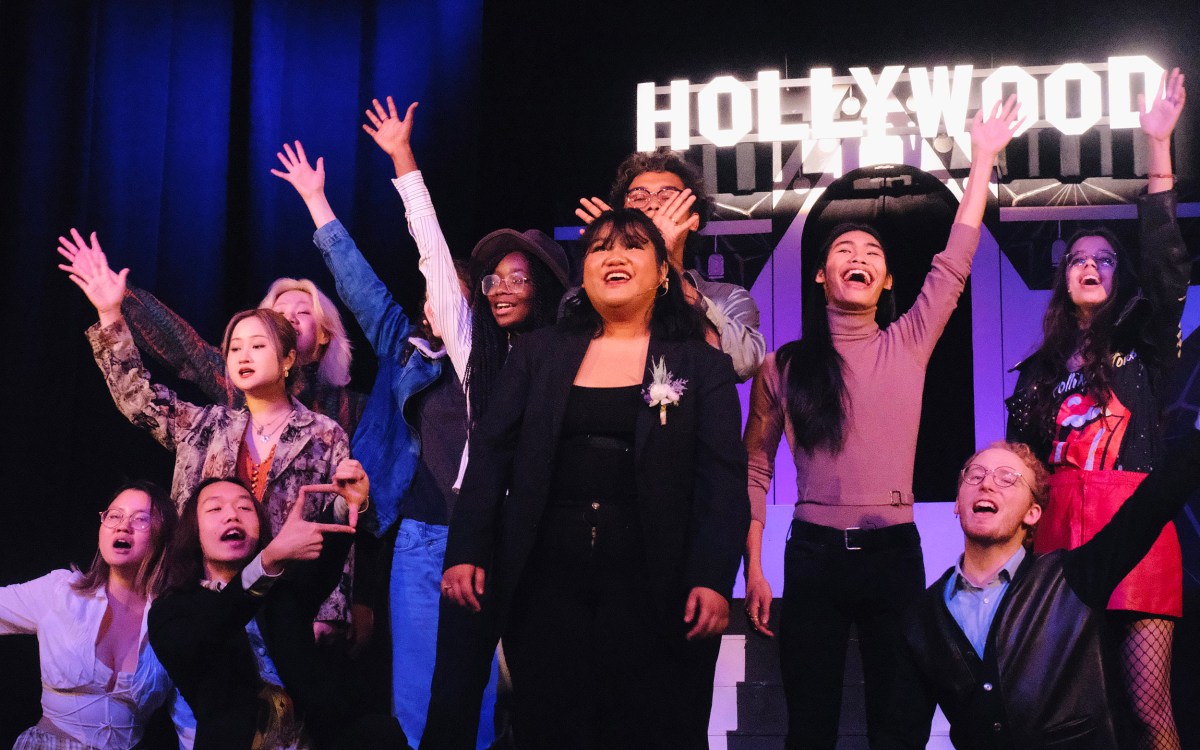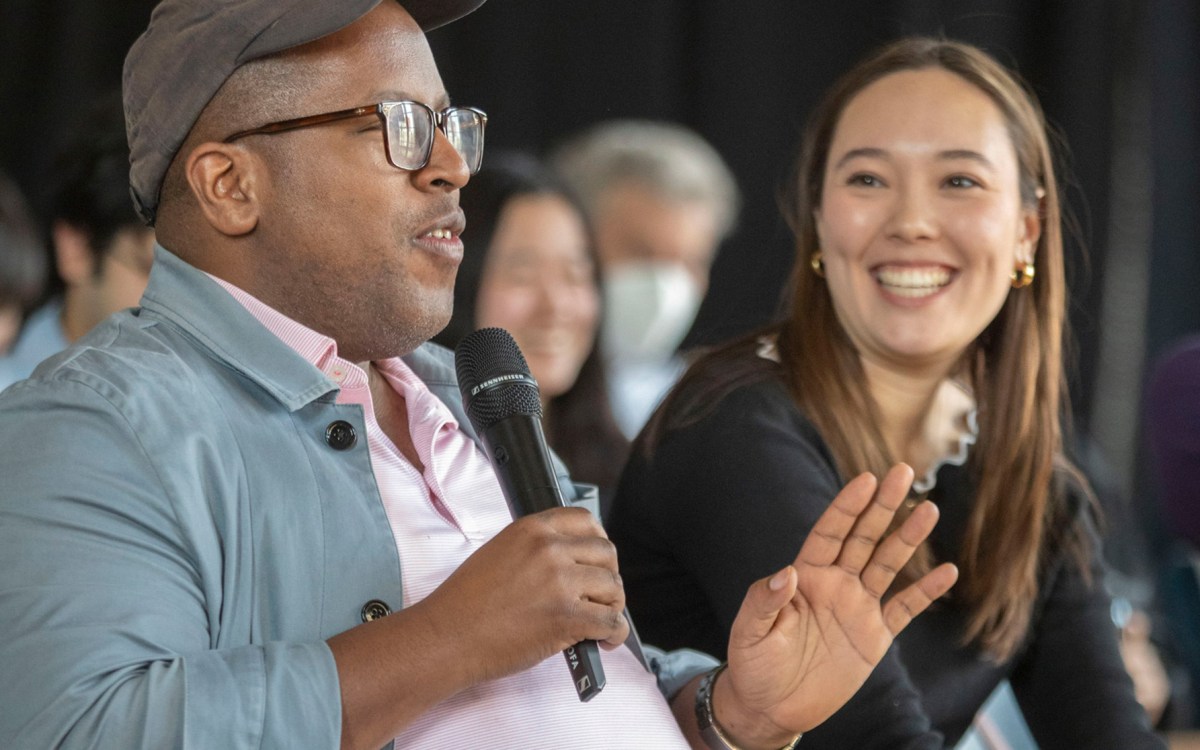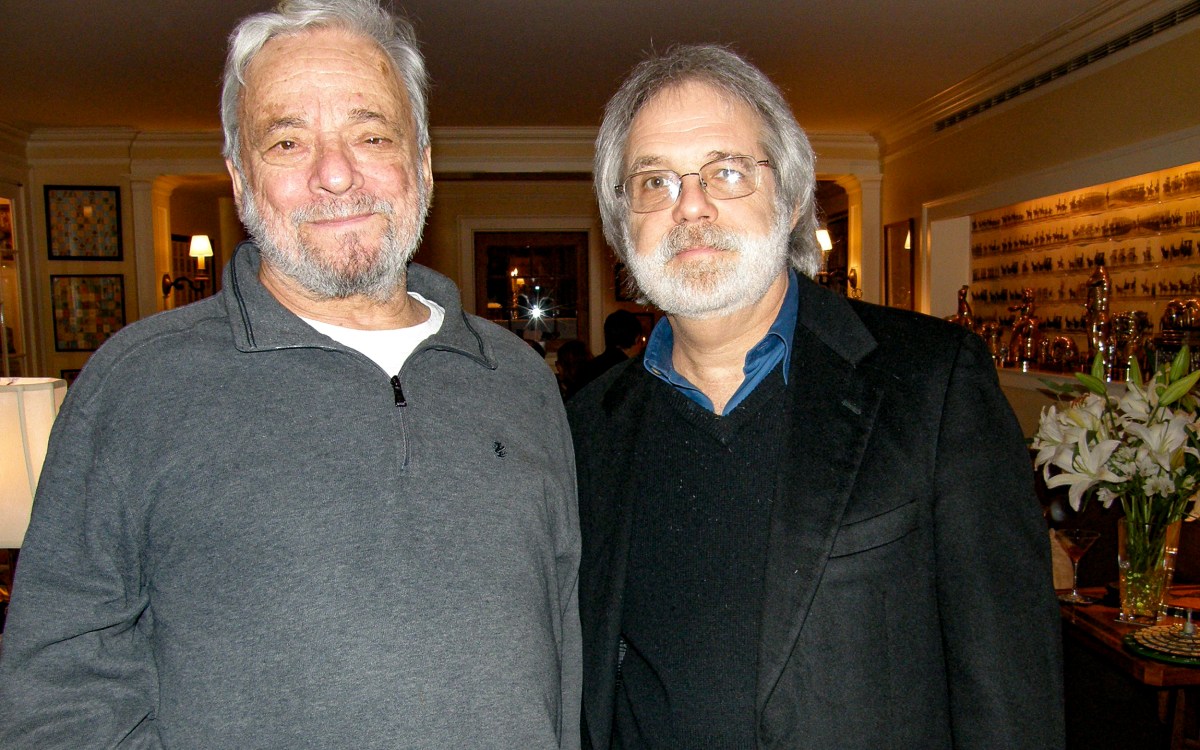Staging the ‘unstageable’
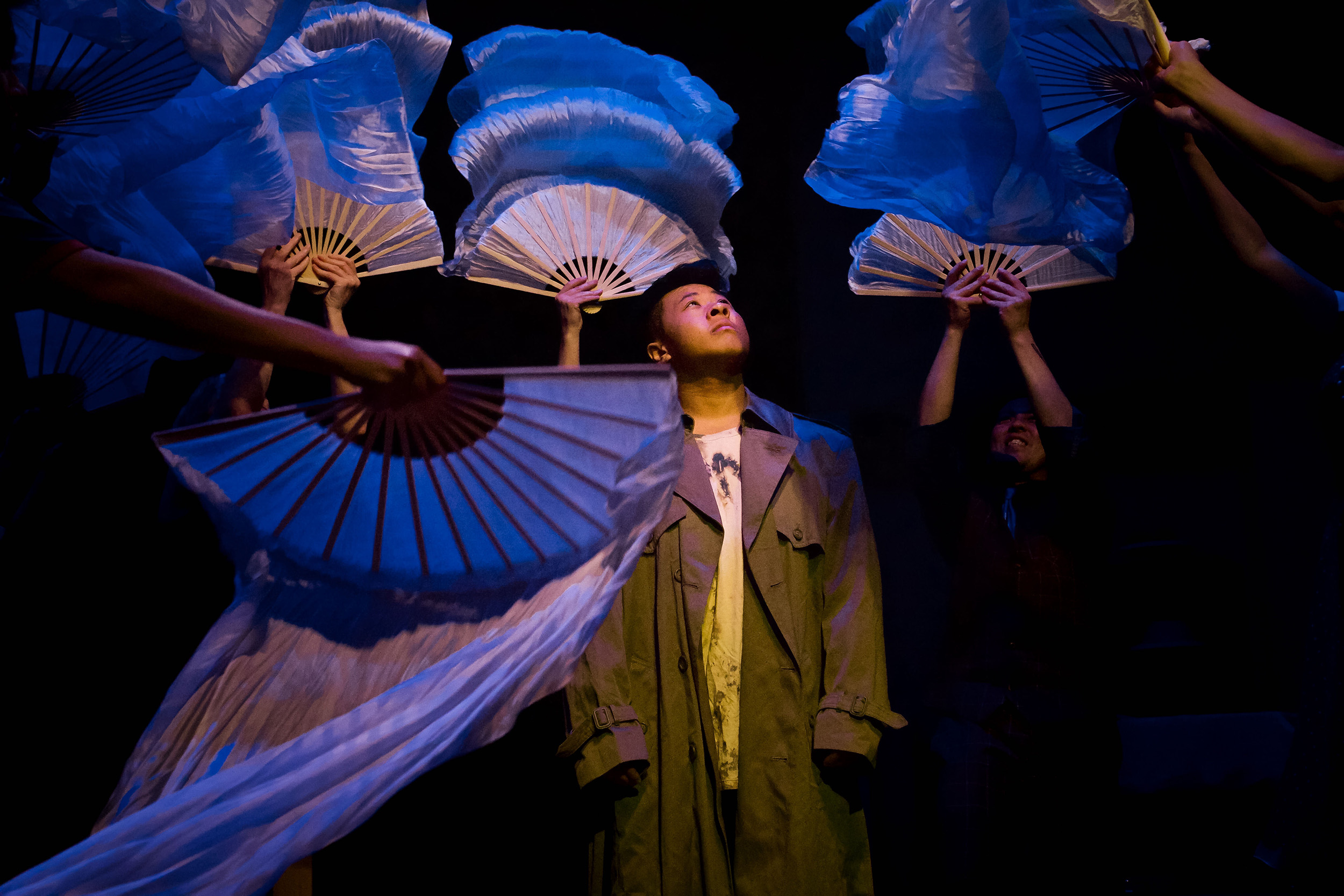
Jupiter Lê as Richard in “SWAN.”
Photos by Sophie Kim
YouTube star, student, and a ghost called Swan collide in Sophie Kim’s ‘dreamscape of queer and trans revelry’ — inspired by professor’s challenge
Picture turning into a winged creature or being transported to a beach and meeting your child self. It’s hard to imagine those events taking place on a stage, let alone as part of a production that grapples with complex themes of queerness and self-discovery. But somehow, junior Sophie Kim has led audiences into this world of magic and despair in “SWAN,” an award-winning play that premiered this month at Boston New Works Festival.
The “fantastical, darkly comedic retelling of ‘Swan Lake’” — awarded the 2022 Phyllis Anderson Prize for Playwriting by the American Repertory Theater — follows Richard, a Korean American college student, and Aiden, a YouTube star whose channel espouses traditional values.
“Both are forced to confront their fears of the future, the queerness they’ve buried, and their need to be who they truly are, even if that means becoming monstrous,” the play’s description reads.
“They’re also haunted,” Kim said. “They start being haunted by this voice in their heads called Swan, which is in the vein of ‘A Christmas Carol’ but more creepy. Like Ursula from ‘The Little Mermaid’ meets Tan France.”
Aiden, a YouTube “tradwife” and closeted trans man, makes a living by dressing up as a 1950s housewife, showing off his devotion to femininity, and serving his handsome “straight” boyfriend. Richard, also a closeted trans man, finds Aiden’s videos and their lives become entangled.
“They are like separate car crashes that intersect,” Kim said.
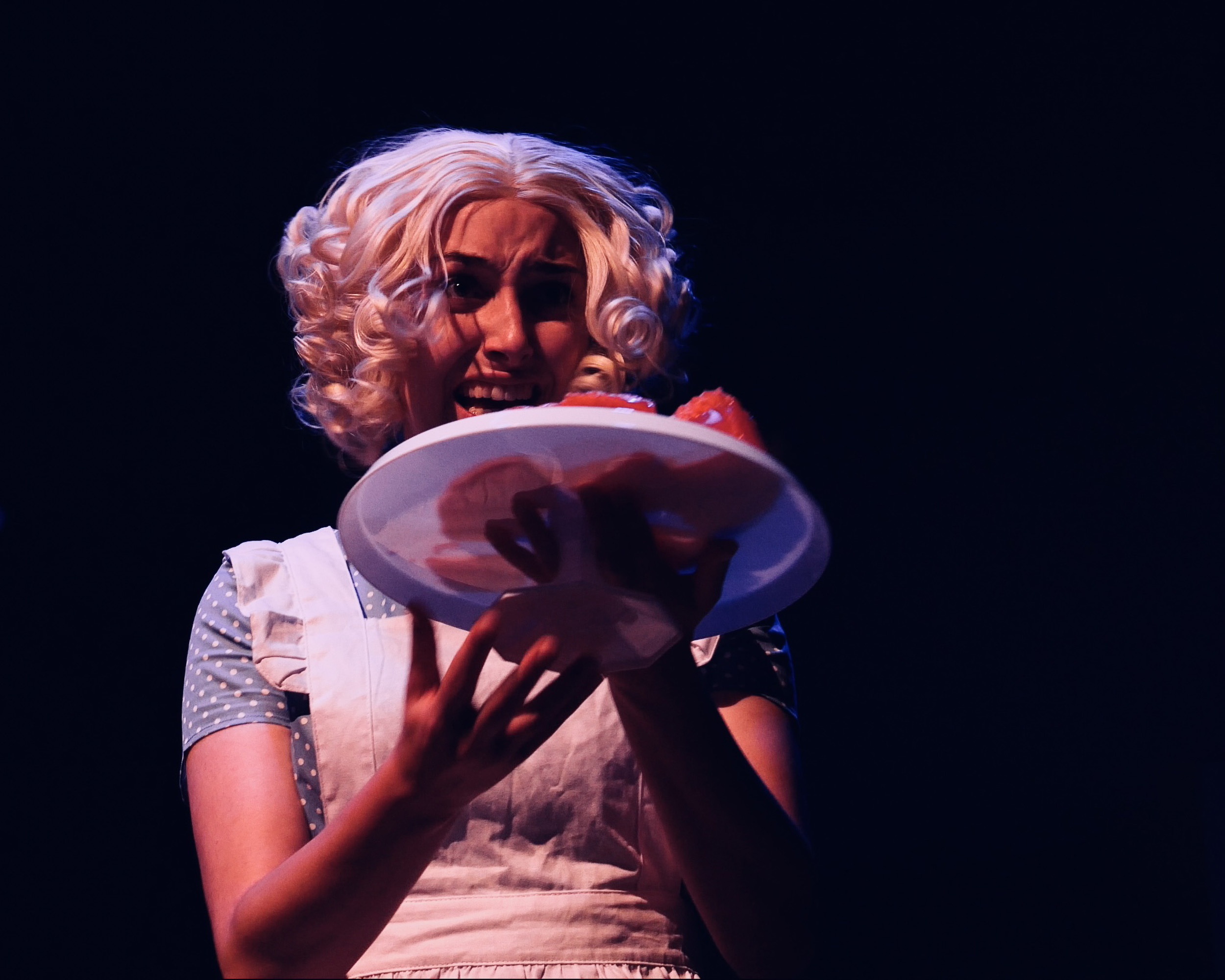
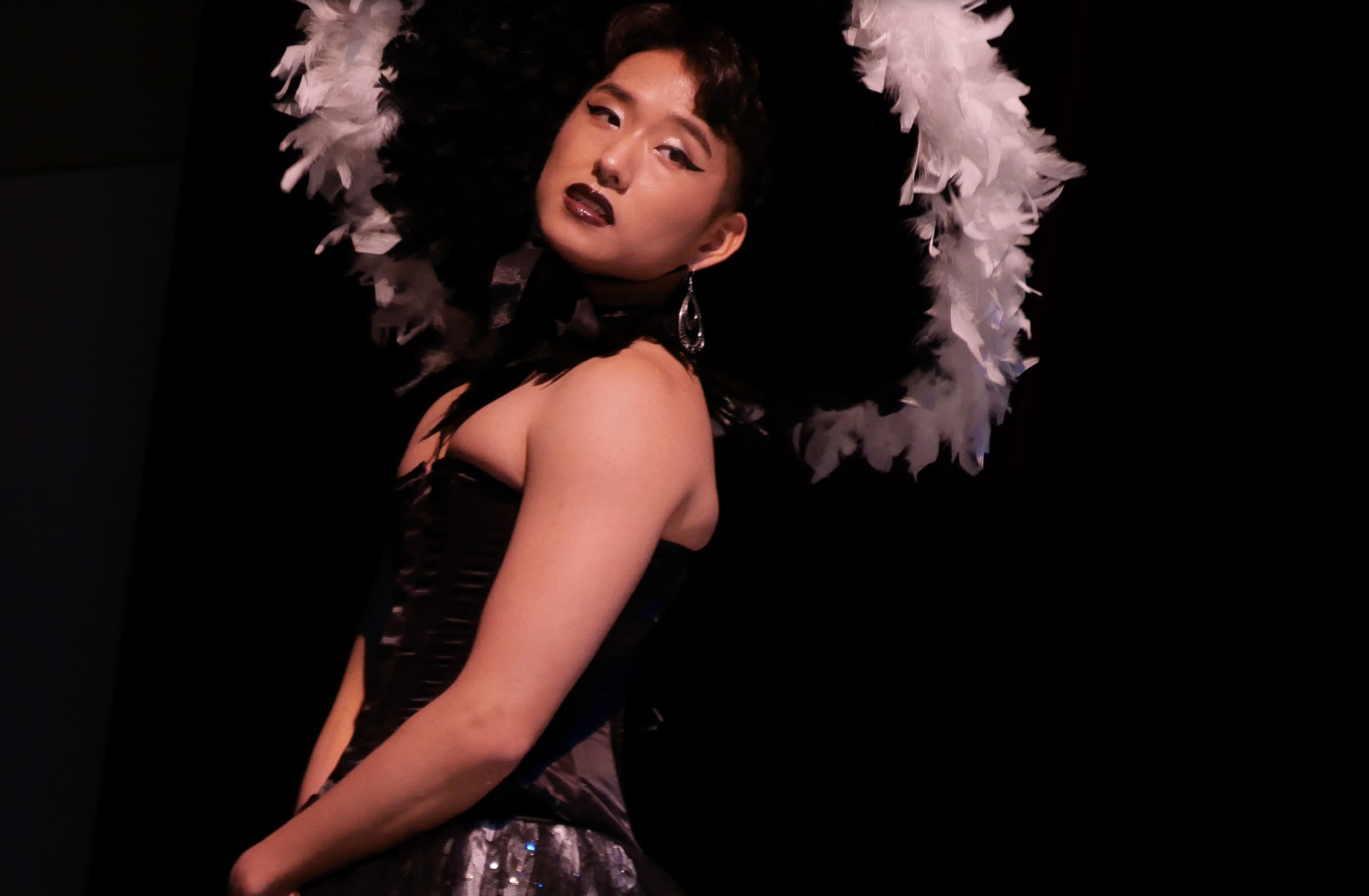
Alyse Clinton as Aiden and Wesley Han as Swan.
This “dreamscape of queer and trans revelry” as Kim calls it, was born out of a prompt in Sam Marks’ Intro to Playwriting class that asked students to write a production that would be “unstageable.” The professor said the prompt has been floating through playwriting circles for decades and is designed to “to challenge the idea of what can be onstage.”
“What I thought was unstageable was really just the limits of your imagination, and the budget. And also getting messages from theaters like, ‘this is too weird, this is too edgy,’” Kim said. “I was just realizing I wanted to do something wild and unhinged.”
“I’m really glad that Sophie took it so far, and with such success, and in such an exciting way,” said Marks, who read and helped workshop the original play.
“There’s a long lineage and history of queerness being seen as deviant and monstrous,” said playwright Sophie Kim. “… I was coming in with the idea that I actually think monsters are pretty cool.”
Courtesy of Sophie Kim
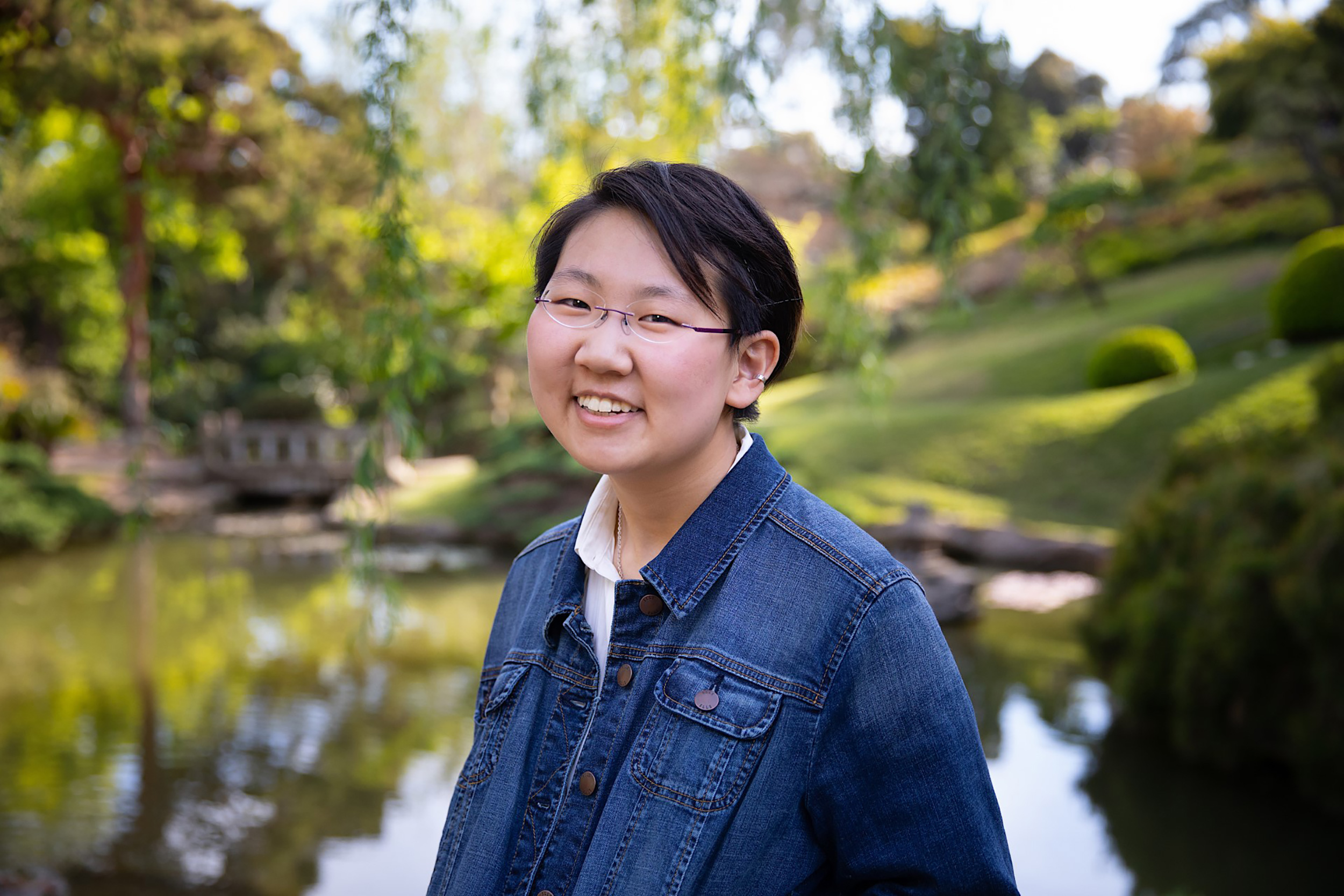
One way “SWAN” takes the idea of “unstageability” and runs with it is in its exploration of monstrosity — otherness that is looked down upon — and the beauty in it, said Kim. “There’s a long lineage and history of queerness being seen as deviant and monstrous. … I was coming in with the idea that I actually think monsters are pretty cool.”
Monstrosity is also the breaking down of binaries, Kim said — between reality and art, humans and creatures, between genders, or even right and wrong. Kim’s characters grapple with the unknown and attempt to see the beauty in it. This, Kim said, builds upon queer theory that there’s always more to explore. “Queerness is a horizon towards which we are always moving. It’s a way of viewing the future and a way of expanding the bounds of the human imagination.”
“SWAN” was workshopped at the Theater Offensive in Boston, a theater company dedicated to queer and trans people of color, before moving to Moonbox Productions. Kim said it was helpful “to be in this place where people could just come and be their full selves, and talk about the play, but also talk about well, what’s it like to be a queer person today?”
At Moonbox, the play developed even further, Kim said. “We did a lot more working with actors and asking them how can we make this play more complex? How can we make it weird? Or how can I make this more unstageable? And how can the process of making something unstageable actually catalyze more exciting things that people are seeing on stage and things that people are thinking about?”



